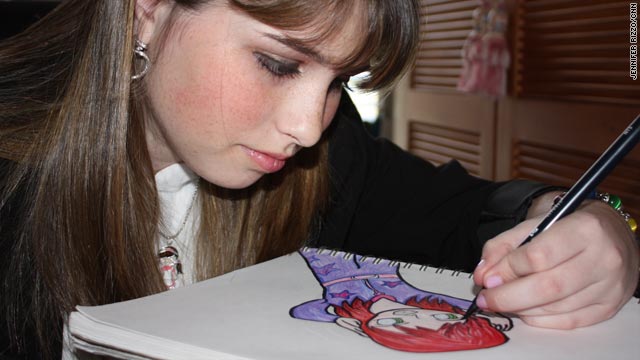
Renee Georgi recently received an anonymous letter from "concerned parents" asking her to find an alternative classroom setting for her son Jake, who has autism, because he is a "distraction" to other children and requires "extra time" from teachers. Here is the letter and her reply:
•
Dear Ms. Georgi,
I am writing on behalf of a growing group of concerned parents at Hampton High. While we can understand and even sympathize with you wanting your son Jake in a "normal" learning environment, we feel that the extra time he demands, coupled with his distractions, is unfair to the rest of the children. With getting into a good college becoming more and more competitive, we feel that our children are not getting the education they need due to one child taking up an inordinate amount of time and causing distractions.
We feel it would be in the best interest of all the children if you would consider an alternative setting for Jake. In no way are we faulting you for wanting what you think is best for your child; we only wish that you consider the impact on the other children.
Thank you for your time and consideration with this important decision.
•
Dear Concerned Parents,
In your letter, you asked me to "consider an alternative setting" for my son. With all due respect, I think I'll pass and keep my son right where he is.
You see, my son and the many others like him have fought very, very hard to get where they are today. And the reason they are where they are today is because most of society sees the potential that children with special needs have when they are taught in the way that they learn.
Every year our son makes more and more strides and requires fewer supports in school, giving him a greater chance at becoming an independent, productive member of society who can interact with all types of people. In addition to academics, life skills and social skills, he has also been taught specifically how to work through various distractions in the classroom. Since your child seems to be struggling in this area, I recommend speaking with your child's teacher to learn strategies that work for both regular-education and special-education students.
Another recommendation I would like to make is for you to do an Internet search on the word "IDEA" (Individuals with Disabilities Education Act). You see, according to the IDEA's Least Restrictive Environment or mainstreaming policy, school districts are required to educate students with disabilities in regular classrooms with their non-disabled peers, in the school they would attend if not disabled, to the maximum extent appropriate.
It is the law.
I think this might help you understand why schools like Hampton have co-taught classrooms. If you do a bit more research, I think you will also find that IDEA's positive impact has been across the board with both regular-education and special-education students. I firmly believe that the students who take the time to get to know their fellow classmates with special needs will likely end up being the successful leaders and role models in the world who have the skills to interact with all types of people.
Over the years I have had many parents approach me and tell me how much their children have enjoyed getting to know my son and how much the relationship has enriched their children's experiences at school. Parents tell me that the things my son teaches their children simply can not be taught in a text book or by a teacher. They are life lessons.
I attribute this positive mindset on the part of these children to both the guidance they receive at home and to the district's teaching of a civic virtues program to the students over the past several years. Perhaps the program should be made available to parents, as well, since it is apparent that the students are not the only ones who could use a good lesson in virtues such as kindness, respect and tolerance.
In closing, I ask that you address any of your concerns to your children's respective teachers in the future. Like many parents, I have found the staff at Hampton to be most engaging, helpful and willing to assist parents with individual educational concerns such as yours.
Sincerely ...
Read more: http://www.post-gazette.com/pg/10148/1061277-109.stm#ixzz0pHJuAC00






